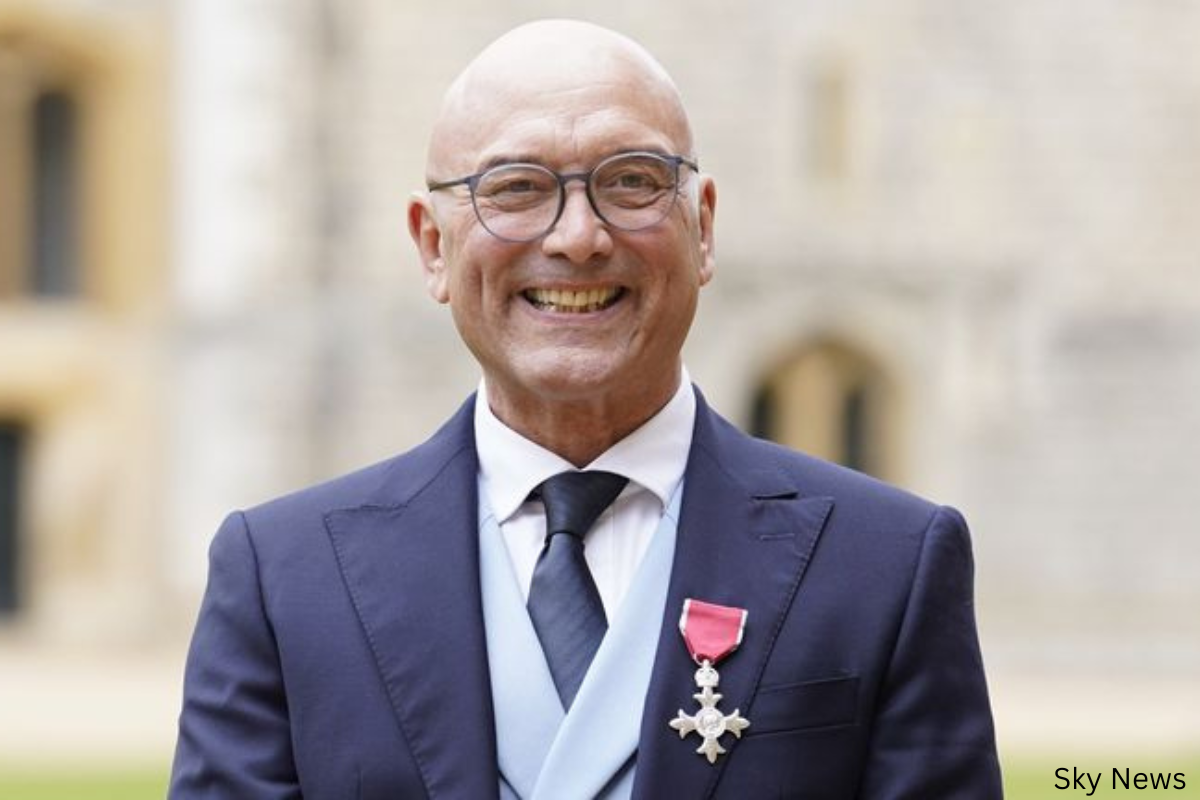The BBC has rejected Gregg Wallace’s claim for damages, arguing that the former MasterChef presenter has no legal grounds to seek compensation over allegations that the broadcaster caused him “distress and harassment.”
Wallace, 60, is suing the BBC and its commercial subsidiary, BBC Studios Distribution Limited, after being sacked from MasterChef earlier this year following an internal investigation into historical misconduct allegations.
In his High Court filing, Wallace alleges that the BBC failed to comply with his request for personal data — commonly known as a subject access request (SAR) — under UK data protection law. He claims that the delay in responding caused him “significant distress and harassment,” for which he is seeking up to £10,000 in damages.
However, in a formal defence submitted to the High Court, Jason Pobjoy KC, representing the BBC, categorically denied the claims. “It is denied that the claimant has suffered any distress or harassment as a result of the responses of the BBC,” Pobjoy stated. “It is denied that the claimant is entitled to any damages, interest, or other relief, whether as pleaded or otherwise.”
The BBC’s legal team further argued that Wallace had no valid grounds to bring the claim, asserting that he had failed to give the broadcaster sufficient prior notice of his intention to launch legal proceedings.
The Data Request at the Heart of the Dispute
Court documents reveal that Gregg Wallace first contacted the BBC on 6 March 2025, requesting copies of all personal data held about him. Such requests, under the UK’s Data Protection Act 2018 and GDPR provisions, require organizations to respond within one month — though extensions are permitted for complex or large-scale requests.
The BBC acknowledged receipt of the request but said the scale and complexity of Wallace’s submission required additional time. According to Pobjoy’s defence, the broadcaster “did not provide a substantive response within three months of the request primarily due to the lack of proportionality and scale.”
He explained that after classifying the request as “complex,” the BBC eventually provided Wallace with the data on 7 October, seven months after the original submission.
The broadcaster maintains that this eventual “voluntary disclosure” invalidates Wallace’s claim for damages. “The voluntary disclosure demonstrates that the claimant has no basis to claim damages for distress, or otherwise, in respect of the withholding of such information,” Pobjoy said in the filing.
Wallace’s Legal Team Says BBC Failed Its Duty
In documents filed on behalf of the former presenter, barrister Lawrence Power contended that the BBC failed in its statutory duty to provide Wallace with his personal data in a timely manner.
Power stated that the corporation only apologized for the delay on 7 August, five months after the initial request, in an email claiming it was “taking all reasonable steps” to process the data “as timely as possible.” Yet by the time Wallace’s legal papers were filed, he had still not received the requested information.
According to the claim, the delay amounted to a breach of data protection obligations, causing Wallace emotional harm. “By failing to fully comply with the subject access requests made by the claimant, the defendants acted in breach of their statutory duty and, in doing so, caused distress and harassment to the claimant,” Power argued.
The case underscores growing scrutiny of how major broadcasters handle data requests and the tension between personal rights and corporate administration.
Background: Wallace’s Exit from MasterChef
The legal dispute comes just months after Wallace’s dismissal from MasterChef — a role he had held since 2005 alongside John Torode.
In November 2024, Wallace voluntarily stepped back from his presenting duties after the BBC launched an independent review into allegations of misconduct and inappropriate behaviour. The inquiry, conducted by law firm Lewis Silkin, reviewed 83 separate complaints spanning several years of Wallace’s time at the BBC.
According to leaked findings reported earlier this year, 45 allegations were upheld, including claims of “unwelcome physical contact” and “inappropriate comments.” The BBC subsequently confirmed that Wallace’s contract had been terminated in July 2025, following the completion of the investigation.
In a statement issued at the time, Wallace said he was “deeply sorry for any distress caused” and insisted he “never set out to harm or humiliate anyone.”
His co-presenter, John Torode, was also later dismissed amid separate but unrelated allegations of misconduct.
The Broader Fallout
Wallace’s case is one of several recent legal and reputational challenges faced by the BBC over its handling of internal conduct and data management. In parliamentary hearings earlier this year, BBC Director-General Tim Davie was questioned by MPs about the broadcaster’s approach to workplace culture, accountability, and transparency.
During one exchange, Davie admitted that “further revelations could emerge” as the corporation continues to review historical complaints involving high-profile talent. “We may see more things coming out,” he said, emphasizing the BBC’s commitment to due process and reform.
Meanwhile, former MasterChef guest and TV personality Penny Lancaster recently claimed she felt “belittled” by Wallace during her appearance on the show, adding another layer of public scrutiny to the presenter’s past behavior.
What Happens Next
The High Court will now consider both sides’ filings before deciding whether Wallace’s claim can proceed to a full hearing. Legal experts say his prospects of success will depend largely on whether he can demonstrate real emotional harm as a direct result of the BBC’s delay, rather than frustration over bureaucratic processes.
Under UK law, damages for distress in data protection cases are typically modest unless there is evidence of significant psychological impact or reputational damage.
The BBC has so far declined to comment further, citing ongoing legal proceedings. Wallace has not issued any new public statements since his initial filing but has previously suggested that he wants “transparency and fairness” from his former employer.
As the legal saga unfolds, one thing is clear: Wallace’s once-celebrated career as a fixture of British food television remains overshadowed by controversy — and his ongoing battle with the BBC is far from over.
%20(4).png)




.png)
.png)
.png)
.png)
